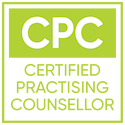Relationship Issues
Understanding Relationship Issues: Causes, Conflict Resolution, and Healthy Boundaries
Relationships are an essential part of our lives, whether with a romantic partner, family members, or friends. However, all relationships face challenges from time to time. Understanding the causes of relationship problems, how to resolve conflicts, and how to maintain healthy boundaries can help strengthen relationships and improve overall well-being.
Causes of Relationship Problems
Relationship problems can arise for various reasons, and the underlying causes are often complex and interconnected. Some common causes of relationship problems include:
1. Poor Communication: A lack of open, honest, and respectful communication can lead to misunderstandings, emotional distance, and frustration.
2. Unresolved Conflict: Conflicts that are not addressed or resolved can fester and grow, causing resentment and tension between partners or family members.
3. Different Expectations: When individuals in a relationship have different expectations about roles, responsibilities, or goals, it can lead to disappointment and conflict.
4. Trust Issues: A breakdown of trust whether due to betrayal, dishonesty, or miscommunication can cause significant damage to any relationship.
5. Emotional or Physical Abuse: In some cases, relationships experience emotional or physical abuse, which can be harmful and damaging.
6. Financial Stress: Money problems, debt, or differences in spending habits can lead to tension and arguments in relationships.
7. Lack of Quality Time: When partners or family members don’t spend enough time together or become overly absorbed in individual activities, emotional disconnection can occur.
8. External Stressors: Stress from work, school, health issues, or other external factors can spill over into personal relationships, causing strain.
Relationship Conflict Resolution
Conflicts are natural in any relationship, but how we handle them is key to maintaining a healthy and functional relationship. Here are some effective relationship conflict resolution strategies:
1. Stay Calm and Listen: Instead of reacting immediately, take a step back, breathe, and listen to the other person’s perspective without interrupting.
2. Use “I” Statements: Express your feelings without blaming the other person. For example, say, “I feel hurt when…” rather than “You always…”.
3. Avoid Escalation: Stay focused on the issue at hand and avoid bringing up past grievances or engaging in name-calling.
4. Find Common Ground: Aim to understand each other’s needs and find a solution that works for both parties. Compromise is often necessary.
5. Take Responsibility: Acknowledge your part in the conflict and apologise if needed. Taking responsibility for your actions can help rebuild trust.
6. Take Time-Outs: If emotions are running high, it may be helpful to take a break and revisit the conversation when both parties are calmer.
7. Seek Professional Help: If conflicts are recurring or too difficult to resolve alone, relationship counselling or therapy can help improve communication and problem-solving skills.
Relationship with Myself
One of the most important relationships we can have is the one we share with ourselves. A healthy relationship with myself is essential for emotional well-being and the foundation of positive interactions with others. Here are some ways to nurture your relationship with yourself:
1. Self-Awareness: Take time to understand your needs, desires, and values. This helps you set boundaries and communicate effectively in all relationships.
2. Self-Compassion: Be kind to yourself, especially during difficult times. Practising self-compassion helps build emotional resilience and a positive self-image.
3. Self-Care: Prioritise your mental, physical, and emotional health. This can include rest, exercise, hobbies, therapy, and spending time with loved ones.
4. Self-Reflection: Regularly reflect on your thoughts, feelings, and behaviours. Journaling or meditative practices can promote self-growth and healing.
5. Emotional Regulation: Learning how to manage your emotions and respond to challenges calmly helps you maintain inner peace and navigate difficult situations effectively.
Healthy Relationship Boundaries
Boundaries are essential in any relationship to ensure respect and mutual understanding. Establishing and maintaining healthy relationship boundaries allows individuals to maintain their personal space, well-being, and independence while fostering trust and intimacy. Key principles of healthy boundaries include:
1. Know Your Limits: Understand your emotional, physical, and mental boundaries and communicate them clearly with others.
2. Be Assertive, Not Aggressive: Assertively express your needs and desires without being forceful or dismissive of others.
3. Respect Others’ Boundaries: A healthy relationship requires mutual respect. Be mindful of other people’s needs, and don’t pressure them into accepting things they are uncomfortable with.
4. Practice Consistency: Boundaries should be clear, consistent, and respected over time. Regularly checking in with each other can ensure that everyone feels heard and valued.
5. Recognise Red Flags: Pay attention to behaviours or actions that violate your boundaries, such as emotional manipulation or disrespect, and take steps to address them.
Adolescent Relationship with Parents
The relationship between adolescents and parents can often be challenging due to the emotional and developmental changes that occur during adolescence. While conflict is common, nurturing a healthy parent-child relationship during these years is important for the adolescent’s growth and development. Key aspects of a healthy adolescent-parent relationship include:
1. Open Communication: Encourage honest conversations where both the adolescent and the parent feel heard and understood.
2. Respect and Trust: Mutual respect and trust are essential for a healthy relationship. Parents should respect their adolescent’s growing need for independence, while adolescents should recognise their parents’ experience and authority.
3. Set Clear Expectations and Boundaries: Define clear expectations around behaviour, responsibilities, and independence, but be open to negotiation as the adolescent matures.
4. Emotional Support: Adolescents need emotional validation from their parents, especially during times of stress or change. Parents should provide a supportive environment for their child to express emotions safely.
5. Spend Quality Time Together: Finding opportunities to engage in shared activities or family time can help strengthen the bond between parents and adolescents.




